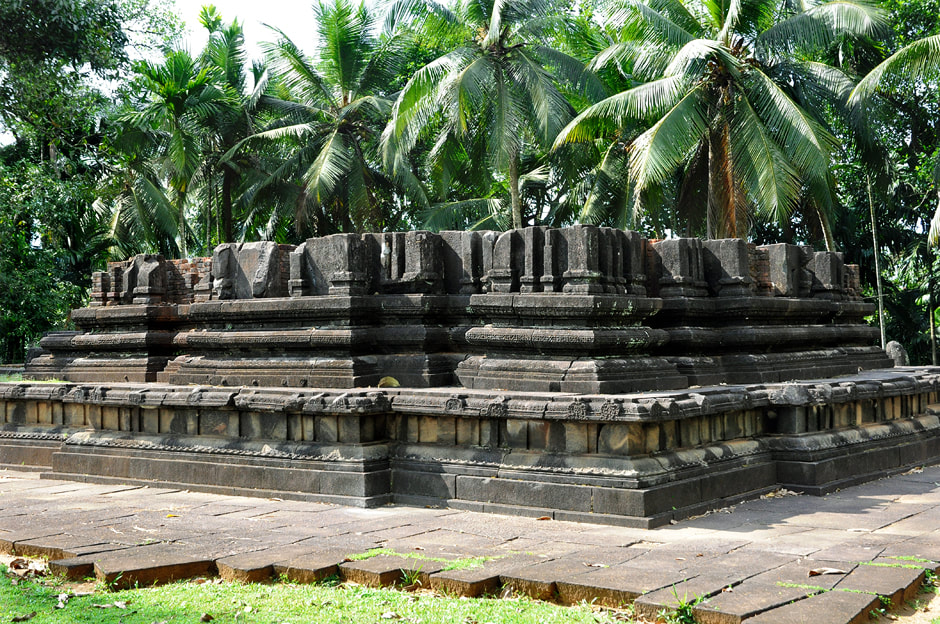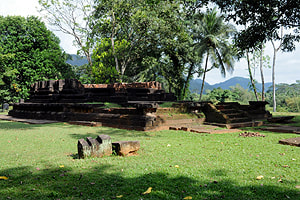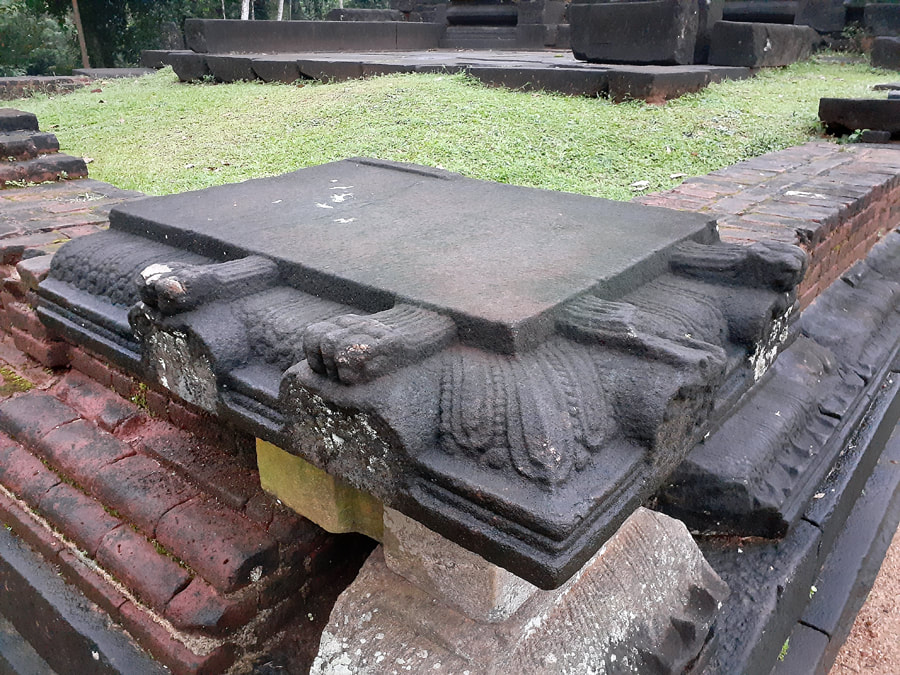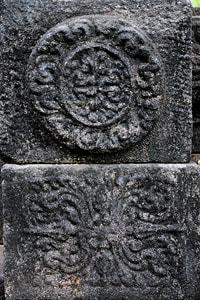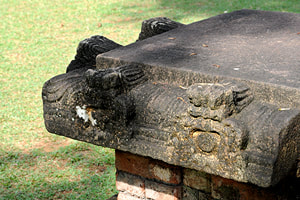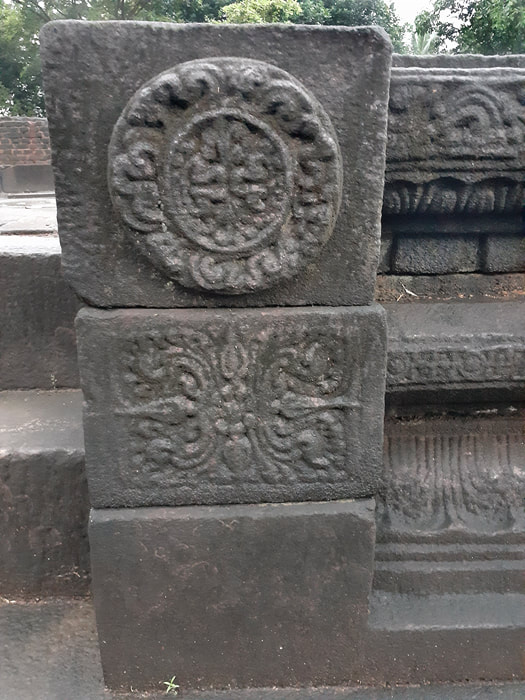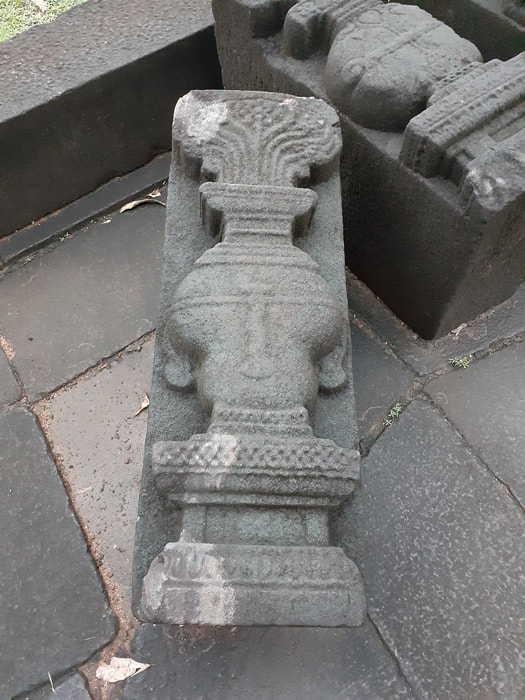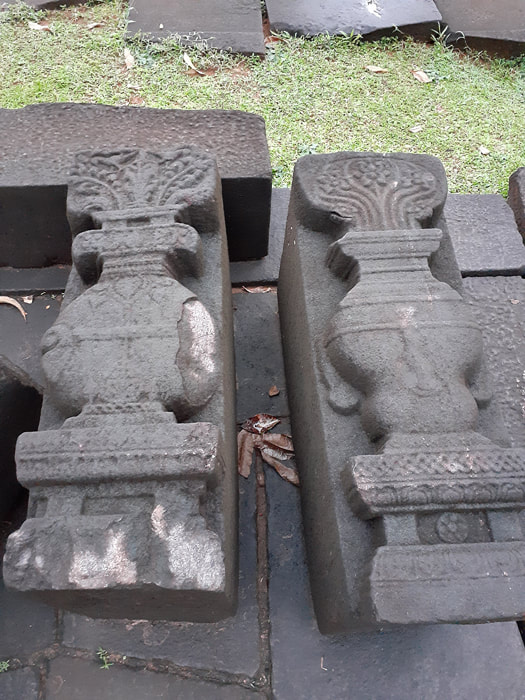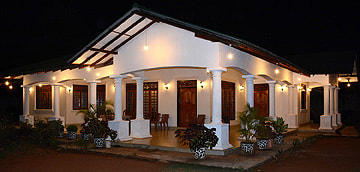The Barandiya Kovil, also known as Berendi Kovil, Barandi Koovila or nicknamed Brandy Kovil, is the only stone monument that remains from Sri Lanka’s 16th century Sitavaka kingdom. It’s disputed whether the Hindu temple is from the Sitavaka period or earlier and if it was ever completed.
The Bandariya Kovil near Avissawela is rarely visited, though the nearby A7 main road is used by large numbers of travellers, as it is the only link between the southwestern beach resorts and the river valley of Kitulgala, which is famous as Sri Lanka’s number one destination for white water radting and adventure holidays. Only foundation walls remain of the 16th century temple that was perhaps never finalized. Anyway, the sanctuary was finally devastated by Portuguese invaders. Nevertheless, the Bandariya Kovil, also known as Barandi Kovila or Berendi Koil, is worth a short break, as these are the only architectural remnants of the kingdom of Sitavaka (Seethawaka), which played a major role in the island’s history in the 16th century. Furthermore, this was the only Sinhalese royal temple that was Hindu and not Buddhist.
Location of Barandiya Kovil near Seethawaka
|
Of the ancient monuments built of stone, the Barandiya Kovil is the one which is situated closest to Sri Lanka’s capital Colombo. Though situated very close to Avissawella alias Seethawaka or Sitawaka, the archaeological site belongs to a suburb known as Talduwa. It’s situated on the right side of a southern tributary of the large Kelani river, just opposite the city. Actually, the other river side is already part of Sabaragamuwa Province, whereas Avissawella is the easternmost town of the Western Provinve. Taking the main road A7 to Kitulgala, branching off from the Colombo-Ratnapura road A7 just in the town centre, the said tributary river will be crossed after about after 800 meters.
|
Only 200m behind the bridge, there is a branch road to the richt, leading to the parking lot at the small park of Barandiya Kovil. Actually, the archaeological site is signposted at the A7 main road. But unfortunately the board can only be seen when approaching from Kitulgala. It could easily be missed when arriving from Avissawella. The small deadlock road to Barandiya Kovil is only 150 m long.
